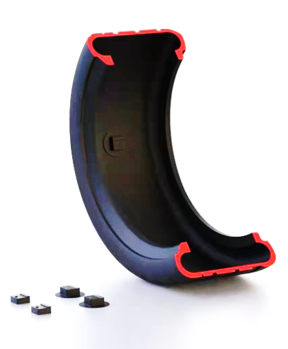Tire Pressure Monitoring Systems (TPMS) have become an essential feature in modern vehicles, particularly in trucks, where safety and performance are paramount. These systems play a critical role in monitoring tire pressure, helping to prevent accidents and improve overall efficiency. In this article, we will delve into the definition, purpose, benefits, and regulatory requirements of TPMS, emphasizing its significance in the trucking industry.
What is a Tire Pressure Monitoring System?
A Tire Pressure Monitoring System (TPMS) is an electronic system designed to monitor the air pressure in tires. It alerts drivers when tire pressure falls below a specified level, which is crucial for maintaining optimal performance. There are two main types of TPMS:
Direct TPMS: This system uses pressure sensors located in each tire to provide real-time pressure readings. If a tire’s pressure drops, the system sends an alert to the driver, ensuring timely action.
Indirect TPMS: Instead of using pressure sensors, this system estimates tire pressure based on wheel speed sensors, typically found in the vehicle’s anti-lock braking system (ABS). While less precise than direct systems, it still helps identify significant pressure loss.
Purpose of a Tire Pressure Monitoring System
The primary purpose of a TPMS is to ensure optimal tire performance. Proper tire pressure is essential for achieving the best contact with the road, which enhances traction and handling. Moreover, a well-maintained tire not only contributes to improved vehicle performance but also enhances safety. Under-inflated tires can lead to blowouts, especially in heavy trucks, increasing the risk of accidents.
Additionally, maintaining proper tire pressure directly impacts fuel efficiency. Under-inflated tires increase rolling resistance, leading to higher fuel consumption. By monitoring tire pressure, TPMS helps truck owners save on fuel costs, contributing to a more economical operation.
Benefits of Monitoring Tire Pressure
The benefits of consistently monitoring tire pressure through a TPMS are manifold:
Increased Tire Lifespan: Regularly maintained tire pressure prolongs the life of the tires, reducing the need for frequent replacements. This not only saves money but also minimizes waste.
Cost Savings on Fuel and Maintenance: Keeping tires at the correct pressure can improve fuel economy by up to 3%, translating into significant savings over time, especially for fleets that travel long distances.
Enhanced Vehicle Handling and Performance: Properly inflated tires ensure better handling and stability, which is crucial for large trucks that carry heavy loads. This results in safer driving experiences and reduced wear on vehicle components.

Which Vehicles Need TPMS?
TPMS is not just beneficial; it is often required by law. In the United States, the Department of Transportation (DOT) mandates TPMS in all passenger vehicles manufactured after 2007, which extends to trucks and buses as well. These regulations ensure that all vehicles on the road maintain a minimum level of safety concerning tire pressure.
Trucks, especially those used for commercial purposes, benefit significantly from TPMS due to the increased risk associated with heavy loads and long hauls. Fleet operators should ensure that their vehicles are equipped with reliable TPMS to adhere to regulations and promote safety.
Best Tire Pressure Monitoring Systems
If you want to get high-quality Tire Pressure Monitoring Systems, but don’t know how to choose, you might as well try Lupital. As a professional Tire Pressure Monitoring Systems supplier, Lupita can provide you with high-quality products and services. Welcome to contact us for detailed ordering information and services!
Conclusion
In conclusion, Tire Pressure Monitoring Systems are vital for the safe and efficient operation of trucks. They help maintain optimal tire performance, enhance safety, and improve fuel efficiency. As regulations increasingly require TPMS in vehicles, truck owners should prioritize the maintenance and monitoring of their tire pressure systems. Investing in a quality TPMS not only protects drivers and cargo but also contributes to cost savings and improved vehicle performance.
Truck owners are encouraged to regularly check and maintain their tire pressure, utilizing TPMS to its fullest potential. By doing so, they can ensure safer journeys and a more sustainable operation in the long run.


